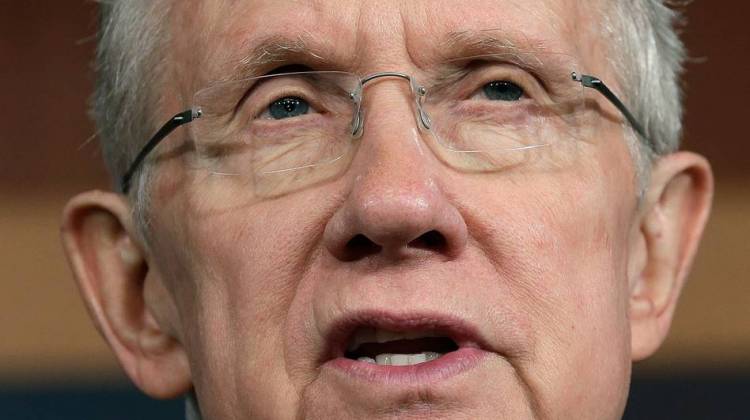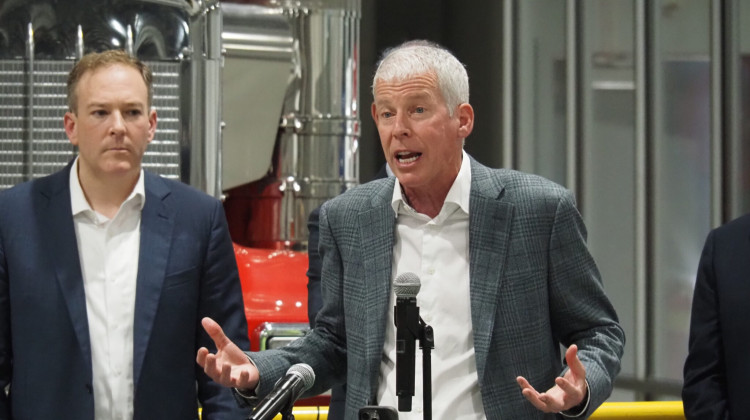Senate Democrats might introduce a measure to raise the debt ceiling, even as the debate over a a spending bill to re-start the federal government drags on.
The Associated Press reports:
"A spokesman said Senate Majority Leader Harry Reid could unveil the measure as early as Tuesday, setting the table for a test vote later in the week. The measure is expected to provide enough borrowing room to last beyond next year's election, which means it likely will permit $1 trillion or more in new borrowing above the current $16.7 trillion debt ceiling that the administration says will be hit on Oct. 17."
Bloomberg writes that "If all Senate Democrats along with six Republicans vote for giving Obama authority, they could send a debt-limit increase without policy conditions to the Republican-controlled House with only a few days to spare before U.S. borrowing authority lapses Oct. 17. That would put pressure on ... [House Speaker John] Boehner."
On Monday, Boehner said he didn't have the votes for a "clean" continuing resolution — as the temporary spending measure to keep the federal government funded is known — but Reid says Boehner offered him such a no-strings-attached spending bill during the summer, only to snatch it away later.
Boehner, speaking to ABC, acknowledged as much, but said that since his initial offer, Republicans had "decided that the threat of Obamacare and what was happening was so important that it was time for us to take a stand, and we took a stand."
You can hear more on David Welna's story on Morning Edition.
Also, former House Speaker Dennis Hastert, in an interview with Morning Edition host Steve Inskeep, says there's "confusion" over the "Hastert Rule" that's named after him and is cited as the reason Boehner can't bring a "clean" CR to a vote. According to the conventional understanding of the rule, as long as Republicans control the House, they won't bring any measure to a vote unless it can be passed by GOP votes alone.
"Almost every speaker ever adhered to that," Hastert explains. "Because if you don't have a majority of your people consistently ... you're not really leading your people anymore. You're getting votes from other places. ... You constantly have to bring people to the table to try to find consensus. And I think with some of [Boehner's] members, it's probably difficult to do."
An opinion piece written by Steven Pearlstein at The Washington Post, suggests that Democrats ought to agree to a review of the Affordable Care Act after it gets going:
"The process could begin after two years with a rigorous evaluation by a respected group of independent experts such as the Institute of Medicine. By the end of 2015, the institute could forward its findings to a special joint committee of Congress, reflecting the partisan makeup of the new Congress. The panel would have the authority to propose any legislative changes it deems necessary, including outright repeal, within 90 days of receiving the advisory group's report."
It's certainly not clear that Republicans would even go for such a proposal even in the unlikely event that the president and Senate Democrats offered it up.
And, lastly, in case the chronology of the shutdown shuffle has got you confused, The New York Times has a handy flowchart to keep it all straight.
9(MDEwMDc1MzM3MDEzNDczOTA0MDc1MzViMQ001))
 DONATE
DONATE









 Support WFYI. We can't do it without you.
Support WFYI. We can't do it without you.